

|
|
|
Silmerhelve |
|
|
|
|
 |
Tesper |
 |
|
Halt! Who goes there?
Introducing the sentinel: an alert new NPC
by Andy Pierce
1. SUBCLASS = n/a
2. SOCIAL CLASS MINIMUM =
3. ABILITY SCORE MINIMUMS
STRENGTH =
INTELLIGENCE =
WISDOM =
DEXTERITY =
CONSTITUTION =
CHARISMA =
COMELINESS =
4. POSSIBLE RACES & MAX. LEVEL ATTAINABLE = orc (TD32)
5. MULTI-CLASS POSSIBILITIES =
6. HIT DIE TYPE =
7. MAXIMUM NUMBER OF HIT DICE =
8. SPELL ABILITY =
9. ARMOR PERMITTED =
10. SHIELD PERMITTED =
11. WEAPONS PERMITTED =
12. OIL PERMITTED =
13. POISON PERMITTED =
14. ALIGNMENT =
15. STARTING MONEY =
16. WEAPON PROFICIENCIES =
17. NON-PROFICIENCY PENALTY =
18. NON-WEAPON PROFICIENCIES = alertness (free)
19. STARTING AGE =
20. COMBAT =
21. SAVING THROWS =
22. MAGIC ITEMS =
It was the second hour after midnight,
and all was quiet at Castle Osgirand, home
to the paladin
of the same name. The
moonlight cast twisted and misshapen
shadows across the landscape in front of the
castle?s main gate. Inside, Osgirand and his
henchmen were deep in sleep after a hard
day of putting the thieves? guild back in its
place. Outside the walls, two of the misshapen
shadows moved. . . .
The man at the gate was an experienced
fighter, one of the most capable warriors in
Osgirand's retinue. He wasn?t used in the
battle against the thieves because the paladin
suspected that the guild would seek
revenge, and Osgirand wanted one of his
best men on guard that night to thwart the
thieves.
The guard stood silently and alertly, his
hand resting on the hilt of his sheathed
sword and his body barring the way
through the main entrance. He had been
told to be especially alert tonight, and he
took his orders seriously. He scanned the
terrain with his eyes and strained to hear
any out-of-the-ordinary noises. But neither
of his senses prepared him for what happened
next.
Suddenly, two black-clad assassins
leapt
out of the shadows by the wall on either side
of the guard. Almost before he knew what
hit him, the guard slumped to the ground,
mortally wounded. The intruders disposed
of the body in the murky shadows off to one
side of the gate, then picked the lock and
crept into the castle to find the paladin and
carry out their assignment. . . .
Although it may not make much difference
to point it out, Osgirand the paladin
was probably more at fault in this episode
than the guard who gave his life in a futile
attempt to
his master. The guard
did the best he could; the problem was that
Osgirand used a fighter for a guard, when
fighters are made for battle. If the assassins
had attacked openly, the guard could probably
have disposed of them, or at least stayed
alive to sound an alarm. But since the assassins
used stealth, the guard got the knife --
and his boss probably did, too.
The intruders might have been detected
and overcome if Osgirand had hired a
sentinel -- a non-player character whose
job it is to defend against both open and
surprise attacks. Although sentinels fight
fairly well, their primary purpose is to
detect approaching invaders or assailants,
and to then sound an alarm and hold off the
enemy until help arrives. To accomplish
this, sentinels have trained themselves to be
exceptionally alert.
A sentinel must have the following min.
ability scores:
13, wisdom 14, and <fix this>
strength 9, intelligence
dexterity 12.
At the start of his career, a sentinel may
be of any non-chaotic alignment. The ideal
alignment for a sentinel is lawful neutral,
but it's not necessary for a first-level sentinel
to have that alignment. However, as a
sentinel gains experience in his function, he
becomes more loyal to his master or employer
and more objective about those he
encounters in the performance of his duties.
This is reflected, in game terms, by a gradual
shift to lawful neutral alignment for any
sentinel who did not begin his career with
that alignment.
With every three experience levels a
sentinel gains after the first level, he shifts
one alignment step closer to LN.
This shift favors the lawful aspect over good
or evil; for example, a sentinel who starts
out neutral good would first shift to lawful
good and then to lawful neutral. Unlike
player characters, sentinels do not lose a
level for undergoing this kind of alignment
change; instead, they must pay a penalty in
earned experience points. A sentinel's first
alignment shift will occur after he finishes
rising through 4th level but before he begins
progressing through 5th level, and he must
forfeit 50% of all the experience points he
earns while at 4th level (so that it takes
twice as many points as normal to advance
through 4th level). The same 50% penalty
is assessed during 7th level, if a second
alignment shift is necessary to bring the
sentinel to lawful neutral. Every sentinel
who advances to 8th level or higher will be
lawful neutral, since no more than two
alignment shifts will ever be necessary. Of
course, a sentinel who starts out as a lawful
neutral character is not subject to these
penalties (and thus can rise in levels more
rapidly than others of his class).
By their nature, sentinels have many
abilities and attributes typical of a fighter --
but the class is not a subclass of fighter, and
it is only open to humans and half-elves
(who may not be multi-classed as a sentinel
and anything else). Sentinels do not roll for
exceptional strength, nor do they receive the
special hit-point bonus that a fighter
receives for high constitution. A sentinel
with both intelligence and wisdom of 16 or
higher is allowed to add a 10% bonus to
earned experience.
As is evident from the accompanying
table, a sentinel has a good hit-point average
for a character of a given level, and
members of the sentinel class continue to
gain hit dice up through 15th level, the
maximum level attainable. Just as the hit
points of a high-level fighter reflect that
character's ability to avoid serious damage
as well as withstand it, so do the sentinel?s
hit points serve as a mirror of his everimproving
abilities to notice the unusual or
imperceptible and take action against a
threat before it actually comes to pass.
Thanks to his high intelligence and wisdom
and an inner sense sharpened by years of
practice, a veteran sentinel will notice a
sharp intake of breath, or the position of a
weapon or the stance of a would-be opponent.
By picking up on signals such as
these, a sentinel is able to predict how,
when, and where a weapon will strike ?
enabling him to take relatively less damage
from the attack, assuming it hits.
A sentinel attacks on the combat table for
fighters -- but it must be kept in mind at all
times that sentinels are used almost exclusively
for defensive purposes, and generally
will not strike first unless a threat is immediately
obvious. A sentinel must be able to
attack quickly, to parry blows, and move
swiftly to block opponents from charging
past them. For these reasons, a sentinel
must only use weapons that have speed
factors of 6 or less, and cannot wear plate
armor. A sentinel can use any type of
shield and almost always carries one on
duty.
SENTINEL EXPERIENCE LEVELS AND SPECIAL ABILITIES
| Experience points | Level | Dice for HP | Level Title | Find
Secret Doors |
Bonus
to Detect Invisible |
Hear
Noise |
Detect
Lie |
Surprise | Find
Traps, pits, etc. |
| 0 — 1,750 | 1 | d10 | Observer | 17% | 1% | 5% | 25% | 33% | 5% |
| 1,751 — 3,500 | 2 | d10 | Watchman | 18% | 2% | 10% | 30% | 30% | 7% |
| 3,501 — 7,000 | 3 | d10 | Post Keeper | 19% | 3% | 15% | 35% | 27% | 9% |
| 7,001 — 15,000 | 4 | d10 | Patroller | 20% | 4% | 20% | 40% | 24% | 11% |
| 15,001 — 30,000 | 5 | d8 | Guard | 22% | 5% | 25% | 45% | 21% | 13% |
| 30,001 — 65,000 | 6 | d8 | Sentry | 24% | 6% | 30% | 50% | 18% | 15% |
| 65,001 — 140,000 | 7 | d8 | Guard Captain | 26% | 7% | 35% | 55% | 15% | 18% |
| 140,001 — 295,000 | 8 | d8 | Guard Master | 28% | 8% | 40% | 60% | 12% | 21% |
| 295,001 — 455,000 | 9 | d6 | Gate Keeper | 31% | 9% | 45% | 65% | 9% | 24% |
| 455,001 — 635,000 | 10 | d6 | Gate Master | 34% | 10% | 50% | 70% | 6% | 27% |
| 635,001 — 865,000 | 11 | d6 | Guard Superior | 37% | 11% | 55% | 75% | 3% | 30% |
| 865,001 — 1,150,000 | 12 | d4 | Elite Guard | 40% | 12% | 60% | 81% | 3% | 33% |
| 1,150,001 — 1,485,000 | 13 | d4 | Elite Guard, 13th | 43% | 13% | 65% | 87% | 3% | 37% |
| 1,485,001 — 1,870,000 | 14 | d4 | Elite Guard, 14th | 46% | 14% | 70% | 93% | 3% | 41% |
| 1,870,001 + | 15 | d4 | Sentinel | 50% | 15% | 75% | 99% | 3% | 45% |
Find secret doors: This is the chance a
sentinel has of finding a secret door, if one
exists in his vicinity and the sentinel is
actively searching for it. Sentinels are
trained to notice subtle differences in wall
color or texture, slight indentations or
cracks or protrusions that might reveal the
presence of a secret door. They can locate
concealed doors much more easily; add
+25% to the value given if a door is concealed
but not a secret door.
Bonus to detect invisible: Because he is
by nature more alert than other characters,
a sentinel is better at detecting the presence
of invisible creatures or moving objects.
(This ability does not apply to astral, ethereal,
or out-of-phase creatures, nor to the
detection of a stationary, non-living invisible
object.) A sentinel is able to notice a disturbance
in the air flow, a slight noise, or a
slight emanation of heat or cold that signals
the presence of something unseen. To detect
a creature or object which is only hidden
but not invisible (such as a thief hiding in
shadows), the sentinel gets a bonus of +25%
to the number given in the table.
The numbers in this column on the table
represent a bonus to a character?s normal
chance to detect invisibility
(see p. 60 of the
DMG). As can be seen from the figures in
the DMG, a sentinel?s chance to detect
invisibility goes up sharply at 9th level (or
perhaps sooner, for sentinels with exceptionally
high intelligence). But even at lower
levels, a sentinel with very high intelligence
gets an additional bonus: +2% for 15 intelligence,
+4% for 16 intelligence, +7% for 17
intelligence, or + 10% for 18 intelligence.
This intelligence bonus is added to the
chance given in the "Bonus to detect invisible" column in the sentinel
table,
and also to the chance given in the DMG
table (if
applicable). For example, a 7th-level sentinel
with 16 intelligence has an 11% chance
of detecting an invisible object. When that
character reaches 8th level, his chance goes
up to 17%. An attempt to detect invisibility
is handled as per the DMG, with one roll
allowed in each round during which the
sentinel is within sensory range of an invisible
object. Note that this ability does not
have to be consciously exercised in order to
work.
Hear noise: This is basically the same as
the thief ability of the same name, except
that a sentinel does not have to be actively
listening for sounds in order to detect them.
Detect lie: The numbers in this column
represent the chance a sentinel has of instinctively
knowing when he is being lied to.
This detection only applies against a figure
or figures who are directly conversing with
the sentinel, not if the sentinel happens to
overhear people talking to each other. The
ability is usually only brought into play if a
character is talking to a sentinel in an attempt
to gain entry to the place the sentinel
is guarding. As with detect invisible and
hear noise, this ability does not have to be
consciously performed in order to work.
Note that detecting a lie does not enable a
sentinel to know the truth.
Surprise: The numbers in this column
represent the base chance for a sentinel to
be surprised. This number steadily decreases
as the sentinel rises in level, down to
a minimum of 3% at 11th level and above.
The base chance is modified when considering
adversaries who do not have the normal
(2 in 6) chance to surprise other figures. For
instance, a bugbear surprises foes at a
chance of 3 in 6, or 1673% greater than
normal ? so, against a bugbear, a sentinel?s
chance to be surprised is increased by 17%
(round fractions up). Conversely, a sentinel
receives a 17% decrease to his chance to be
surprised by a creature that only surprises
on a 1 in 6 chance, meaning that a sentinel
of 7th level or above will never be surprised
by such a creature unless some extraordinary
circumstance prevails.
This surprise percentage is also used to
determine the chance that a sleeping sentinel
will be awakened by some unusual
noise; this is equal to 50% minus the surprise
chance. Thus, a 1st-level sentinel will
be awakened by a strange noise on a 17%
chance, and an 11th-level sentinel on a 97%
chance.
Find traps, pits, and snares: This is a
combination of the thief's ability to find
traps and the power bestowed by the druid
spell detect snares & pits. Unlike most of
the sentinel's other abilities, this must be
consciously exercised in order to succeed.
Note that a sentinel can only find such
traps, and cannot remove, deactivate, or set
them.
Parrying
If a sentinel does not wish to attack, he
can choose to try to parry one attack against
him per round, plus one for every three full
levels of experience the sentinel has attained
-- 1 at 1st level, 2 at 4th level, 3 at 7th
level, 4 at 10th level, and 5 at 13th level and
above. The person controlling the sentinel
must announce the intent to parry before
any attacks are made against the character
in a round, and must also specify which
blow (or blows) the sentinel will attempt to
block. Parrying can only be attempted
against attacks from melee (hand-held)
weapons and only if the sentinel is holding a
weapon or a shield.
Parrying is conducted as
per the guidelines
on p. 104 of the Players Handbook.
The sentinel can make no return attack in
the same round, and for purposes of determining
whether an opponent?s strike succeeds,
the sentinel is treated as if he had an
extra +2 bonus ?to hit? for strength, in
addition to the actual +1 bonus ?to hit? that
a sentinel with 17 or 18 strength would
already have.
Other characteristics
A sentinel can only be hired by a nonchaotic
character; he will serve no one else.
Once a sentinel attains 8th level and becomes
(if he wasn?t already) lawful neutral,
he will serve his master/employer/liege with
fanatical devotion. The sentinel will not
accept bribes under any circumstances and
will fight to the death if no other avenue is
open (for instance, if he knows no reinforcements
are forthcoming and he is the last
obstacle between an enemy and his master).
Until the sentinel reaches 8th level, this
code does not apply, even if the character
was lawful neutral from the start.

A sentinel is initially proficient with only
one weapon, but wields that weapon with a
bonus of +1 ?to hit.? The character gains
proficiency in one new weapon every three
levels thereafter (at 4th, 7th, 10th, and 13th
levels), but only attacks made with the firstchosen
weapon are eligible for the hit bonus.
A sentinel?s non-proficiency penalty is
-2 ? and note again that a sentinel can only
use weapons with a speed factor of 6 or
lower.
A sentinel makes saving throws as a
fighter and is able to use all magic items
permitted to that class, except for plate
armor and weapons with a speed factor of 7
or higher. No sentinel will use oil in combat,
since it is time-consuming and generally
unreliable. An evil sentinel might not
hesitate to use a poisoned blade; however,
all decisions on poison use should be made
by the individual DM. A sentinel never has
henchmen, and attracts no followers regardless
of his charisma score.

Apprenticeship of a sentinel
To become a sentinel, an aspiring apprentice
must first serve under a sentinel of not
less than 5th level for a term of 3-5 years.
During this time, the pupil (who is neither a
henchman nor a follower in the literal sense)
will perform menial tasks for the mentor
and at the same time receive instruction in
how to observe the nature of people, how to
sharpen his senses of perception and observation,
and how to perform the art of parrying.
At the end of the apprenticeship, the
mentor will turn the new sentinel (now a
1st-level Observer) over to the mentor?s
own employer, who will place the newcomer
in a probationary job, either where the
mentor works or at another allied location.
After one year of probationary service,
the new sentinel will be granted a permanent
placement in the employer?s household,
if the master is pleased with the
newcomer's performance. If the master is
displeased, he will either sell the sentinel?s
service to another employer or simply turn
the newcomer loose to fend for himself.
An aspiring sentinel who successfully gets
through the training and apprenticeship
period will be guaranteed a place of employment
in which he will be treated well and in
which he will be able to perform to the best
of his ability. This good treatment for services
rendered is the main reason why sentinels
are so loyal (and become fanatical
about it as they rise in levels); in turn, this
devotion helps keep sentinels in good standing
with owners of estates, nobility, and
other men of means who have valuable and
important possessions ? including themselves
? to be guarded.
The Eternal Guard
NAME:
SEX:
RACE:
AGE:
ALIGNMENT:
CLASS:
STR:
INT:
WIS:
DEX:
CON:
CHA:
JEWELRY:
GEMS:
PLATINUM:
GOLD:
LEVEL:
EXP:
AC:
HP:
THACO:
DAMAGE:
ENCUMBRANCE:
MOVEMENT:
WEAPON:
STATUS:
U2.27 GUARD ROOM
zb
ROGUES GALLERY: SENTINELS
47.
46. R2
45. L2
44. Kalitrates | (drow m F3) | (I3-5.78)
43. (I3-5)
42.
41.

40.
39.
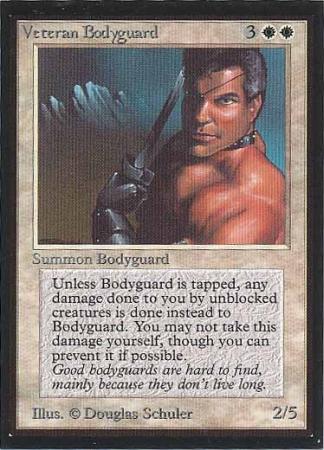
38.
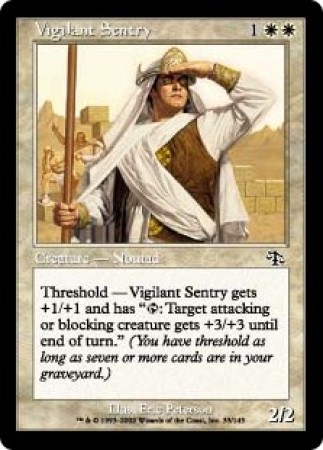
37.
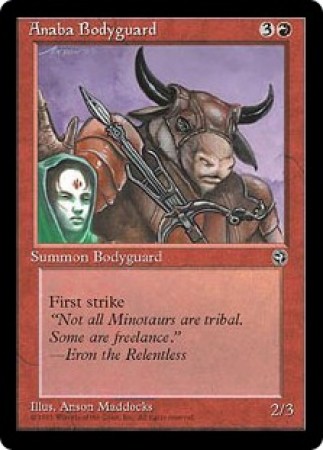
36.
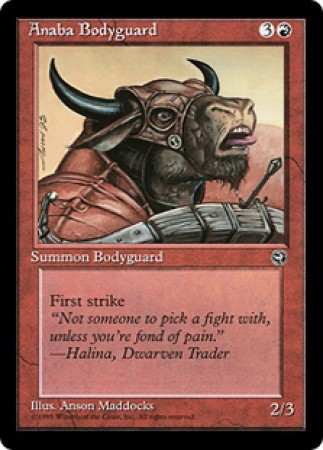
35.
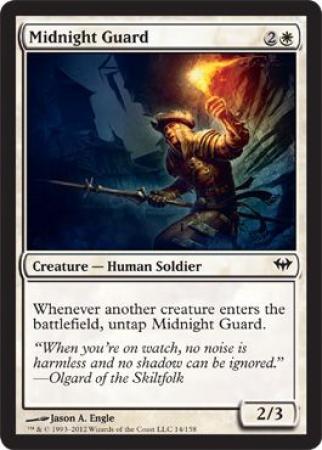
34.
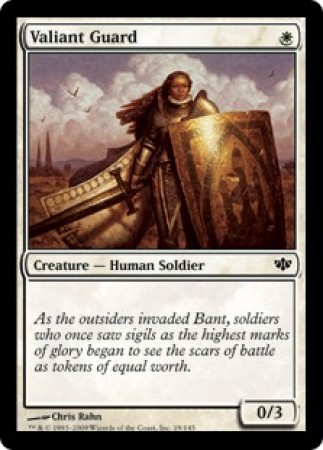
33.
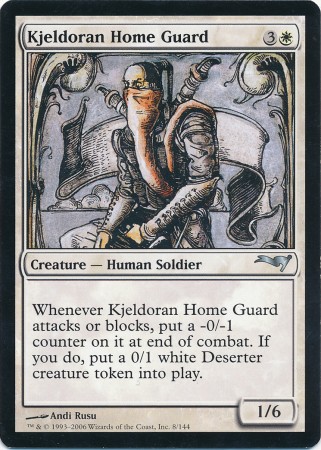
32.
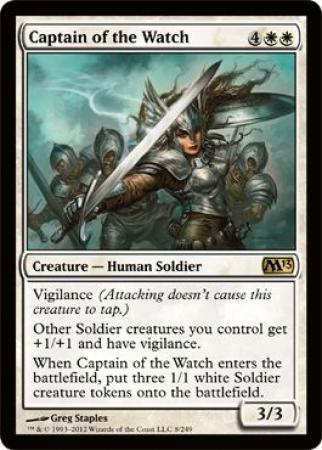
31.
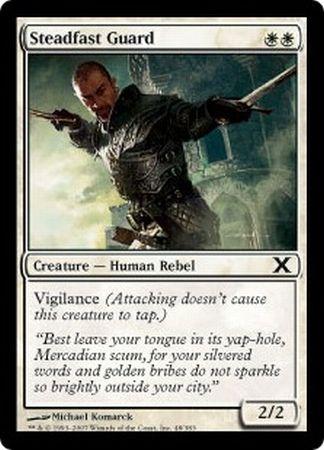
30.
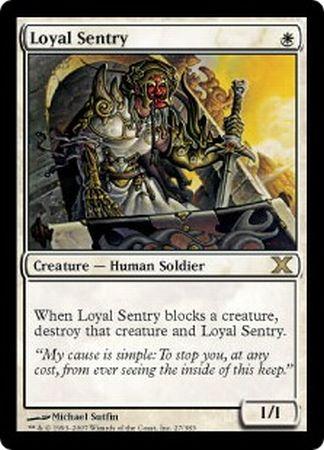
29.
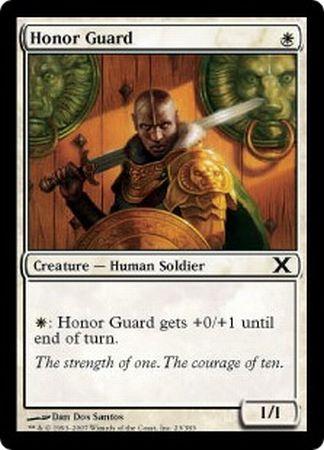
28.

27.
![]()
<guard>
26.

Guardian of the Sanctuary, by Clyde Caldwell
25.

24.
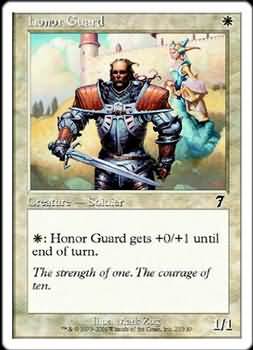
23.
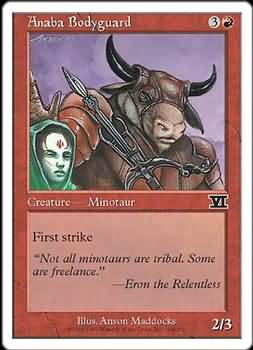
22.
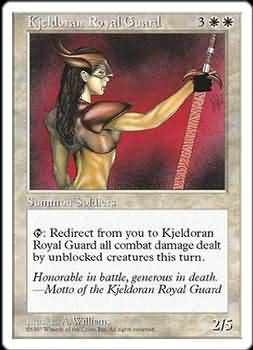
21.

20.

19.
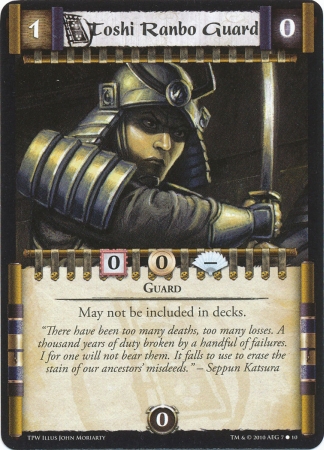
18.

17.

16.

15.

14.
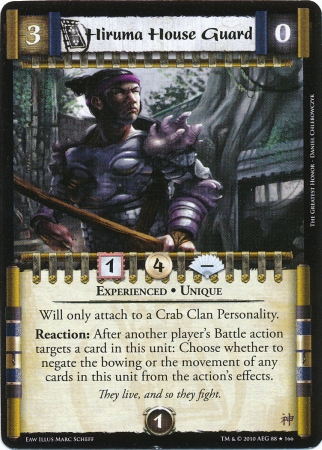
13.
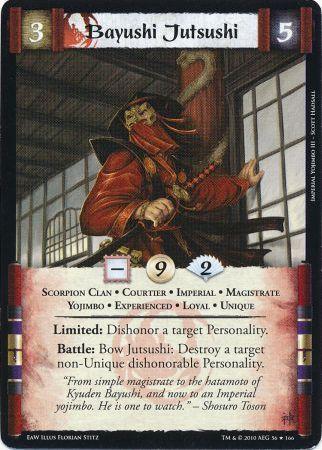
12.

11.

<check filename for image>
10.

9.
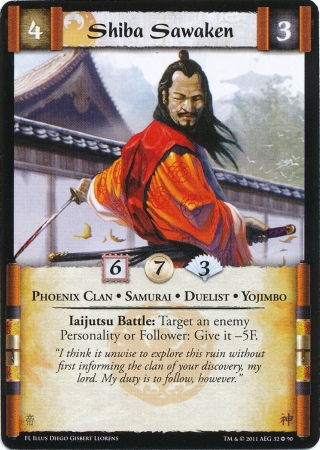
8.

7.
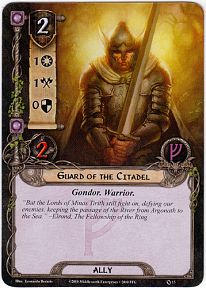
"But the Lords of Minas Tirith still fight on, defying
our enemies, keeping the passage of the River from Argonath to the Sea."
- Elrond, The Fellowship of the Ring
6.
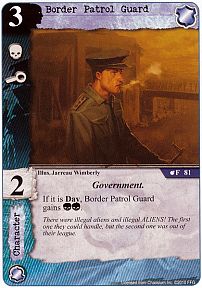
5.
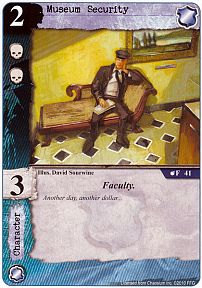
4.
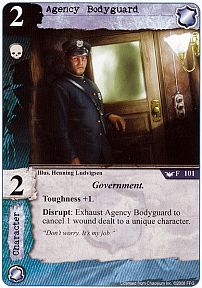
3.
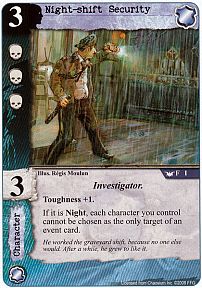
2.
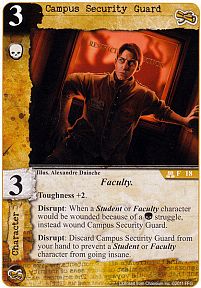
1.

1. SUBCLASS = n/a
2. SOCIAL CLASS MINIMUM =
3. ABILITY SCORE MINIMUMS
STRENGTH =
INTELLIGENCE =
WISDOM =
DEXTERITY =
CONSTITUTION =
CHARISMA =
COMELINESS =
4. POSSIBLE RACES & MAX. LEVEL ATTAINABLE = human, half-elf
5. MULTI-CLASS POSSIBILITIES = none
6. HIT DIE TYPE =
7. MAXIMUM NUMBER OF HIT DICE =
8. SPELL ABILITY =
9. ARMOR PERMITTED =
10. SHIELD PERMITTED =
11. WEAPONS PERMITTED =
12. OIL PERMITTED =
13. POISON PERMITTED =
14. ALIGNMENT =
15. STARTING MONEY =
16. WEAPON PROFICIENCIES =
17. NON-PROFICIENCY PENALTY =
18. NON-WEAPON PROFICIENCIES =
19. STARTING AGE =
20. COMBAT =
21. SAVING THROWS =
22. MAGIC ITEMS =